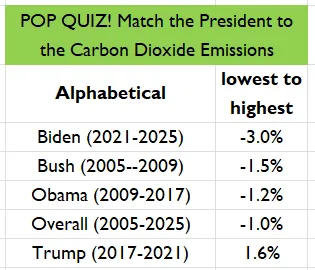by H. Sterling Burnett
Google News is hyping a story published by Agrinews, which promotes a month-old World Bank report claiming water scarcity in the Middle East – caused by climate change – threatens crop production. The World Bank report, “Water in the Balance,” is old news, made up of model-driven speculation, instead of data. Real-world crop data, by contrast, tell a story of stunning crop success in the Middle East and throughout the world.
Climate Realism discredited the World Bank report in early November. Data show that despite considerable political turmoil and ongoing conflicts in the region, the naturally arid Middle East has seen its crop production grow as the earth has modestly warmed.
Since media outlets are still reporting the World Bank’s fiction as fact, Climate Realism’s refutation bears repeating.
The World Bank’s study says, “[w]hile information about water scarcity at present and in the future is available there is little knowledge of what this increasing scarcity means for Middle Eastern … food security. Agriculture will suffer because of climate change and water scarcity….”
In particular, in Summary for Policy Makers, the World Bank asserts water scarcity caused by climate change will reduce farm production in Iran, Iraq, Jordan, Lebanon, Syria, and Turkey. The available evidence strongly suggests that will not happen.
Real-world data concerning crop production across the Middle East shows crop yields and overall production have increased dramatically. More food is being produced even as thousands of acres of agricultural lands have been abandoned during regional conflicts.
Data from the U.N. Food and Agriculture Organization show during the period of modest warming since 1989:
- Cereal crop production in Iraq increased 91 percent, even as the acreage being harvested fell 5 percent.
- Cereal crop production in Iran increased 187 percent, while the acreage harvested increased by just 2.6 percent.
- Cereal Crop production in Jordan increased 15 percent, even as the acreage harvested declined 30 percent.
- Cereal Crop production in Lebanon increased 115 percent, while acreage harvested increased 30 percent.
- Cereal Crop production in Syria increased 22 percent, even as acreage harvested declined 66 percent.
- Cereal Crop production in Turkey increased 46 percent, even though acreage harvested declined 19 percent.
That Middle Eastern countries have increased crop production even as many of them have been embroiled in internal political strife, outright civil warfare, and external conflicts, is clearly good news—not a climate crisis.
Global warming lengthens growing seasons, reduces frost events, and makes more land suitable for crop production. Also, carbon dioxide is an aerial fertilizer for plant life. In addition, crops use water more efficiently under conditions of higher carbon dioxide, losing less water through transpiration. The latter fact should have allayed the World Bank’s concern about climate change-induced water shortages leading to crop failure.
The benefits of more atmospheric carbon dioxide and a modestly warming world have resulted in 17 percent more food being available per person today than was the case 30 years ago, even as the number of people has grown by billions. Indeed, United Nations data show the last 20 years have seen the largest decline in hunger, malnutrition, and starvation in human history.
Rather than regurgitating the World Bank’s flawed report as fact, Agrinews should have done some honest, independent research. Had the paper done so, it would have found crop production in the Middle East, as is true for most of the rest of the world, is booming during the period of purported catastrophic warming. Sorry, Google, Agrinews, and the World Bank, increased crop production and yields are the very opposite of a climate crisis.


